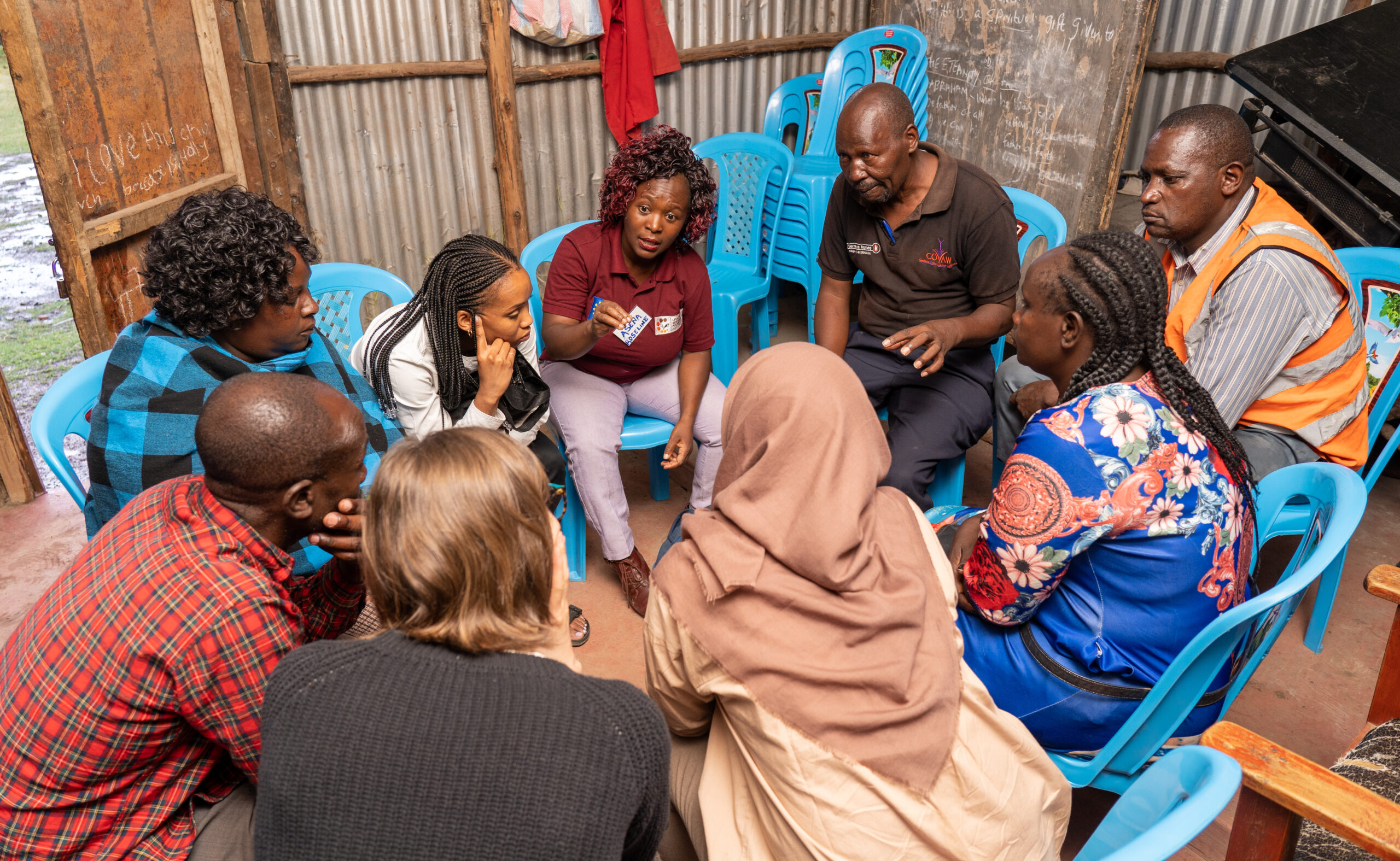What is Legal Empowerment?
Justice challenges are complex and interrelated. Some can be resolved as cases before formal justice institutions – including courts and police – but most require engagement with a broader range of legal, social, administrative, and political processes. Recognizing this, grassroots groups are working directly with communities to help them understand, use, and shape the law in creative and holistic ways – a process known as legal empowerment.
Legal empowerment is a community-led, bottom-up approach. In contrast to conventional legal aid approaches, which often treat people as victims requiring a service, legal empowerment is about building the knowledge and power of people to solve injustices themselves. Legal empowerment shifts from “I will solve this problem for you,” to “We will solve it together, and in the process we will grow.” Through the process of legal empowerment, the people most impacted by injustice gain the capacity to exercise their rights and take part in the decisions that affect their lives.
The Role of Grassroots Justice Defenders
At the forefront of legal empowerment efforts are a multitude of grassroots justice defenders, including community paralegals, human rights activists, community organizers, and community-facing lawyers. Whatever their titles, grassroots justice defenders have a working knowledge of law and policy. Many are skilled in negotiation, community organizing, and advocacy. They deploy these skills to raise awareness of rights, laws, and policies; help people navigate legal and administrative processes in the pursuit of remedies; and support citizen engagement in law and policy reform.
The methods of grassroots justice defenders are diverse and pragmatic. They hold legal awareness sessions, conduct mediations, or mobilize communities to take action to stop collective injustices. As needed, they engage a variety of institutions and actors, such as customary mechanisms, administrative agencies, or health clinics. The aim is to meet people where they are, and help them to define their own paths forward.
Legal Empowerment and Structural Change
Legal empowerment efforts play a key role in challenging the structural inequalities and power asymmetries that allow injustice to persist. Often, this involves organizing and building community power to demand change. Indeed, the history of legal empowerment is rooted in collective struggles for freedom, democracy, and human rights. In the 1950s, for instance, community paralegals working with community leaders and the NGO Black Sash in South Africa helped people to defend themselves against repressive apartheid-era laws. Over time, as these countries began to democratize, paralegals spent more time helping citizens hold their governments accountable to their new commitments – a process of deepening democracy that continues today. Legal empowerment champions are now taking forward this important work in countries around the world, although it can look very different in more stable democracies than in those that are emerging, or experiencing the erosion of the rule of law.

